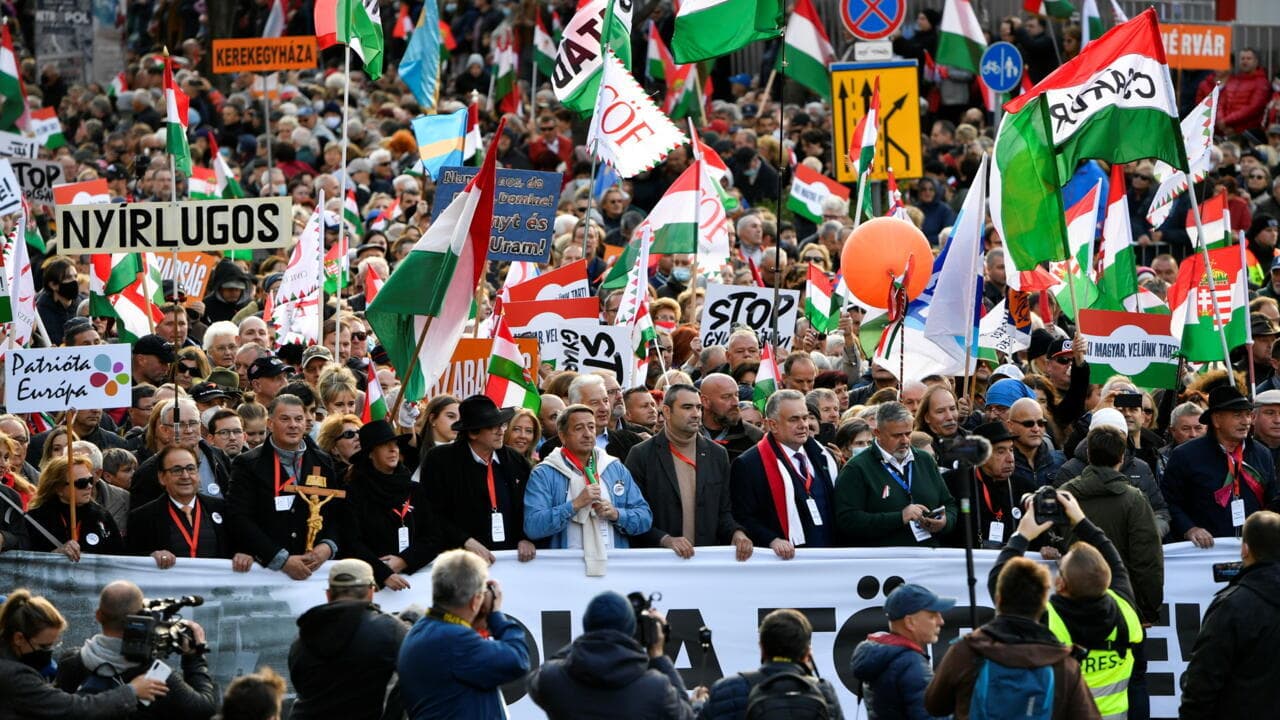We're loading the full news article for you. This includes the article content, images, author information, and related articles.
Tens of thousands are expected to attend opposing rallies in Budapest as Hungary's election campaign officially begins, highlighting a deeply polarised political landscape ahead of next year's general elections.

Hungary's political arena is set for a charged period as rival rallies mark the official start of the election campaign. On Thursday, October 23, 2025, tens of thousands are anticipated to gather in Budapest for demonstrations organised by Prime Minister Viktor Orbán's ruling Fidesz party and the opposition Tisza party, led by Péter Magyar. This mobilisation underscores the intense political divisions within the Central European nation as it gears up for general elections in April 2026.
The anniversary of Hungary's 1956 uprising against Soviet rule, a date central to Fidesz's ideology, provides the backdrop for these events. While Fidesz historically championed anti-Soviet sentiments, the party, under Orbán, has reportedly moved closer to Russia in recent years.
Fidesz, in power since 2010, anticipates a record turnout at its Budapest commemoration, where Prime Minister Orbán is slated to address supporters at the parliament. The rally, framed by Fidesz as a 'peace march,' faced a minor setback with the reported cancellation of a potential meeting between Donald Trump and Vladimir Putin in Budapest, an event Orbán had reportedly touted as a personal triumph.
The Fidesz rally's route through the capital will intersect with another significant demonstration organised by Péter Magyar's Tisza party. Magyar, a former Fidesz insider, has emerged as a formidable challenger to Orbán, capitalising on public discontent fueled by record inflation and recent political scandals.
With six months remaining until the general elections, recent polls indicate a tight contest between Fidesz and Tisza. According to Balázs Böcskei, a political scientist and director of the independent IDEA Institute, their latest poll suggests that if elections were held today, Fidesz would garner 27% of the vote, while Tisza would secure 37%. Böcskei noted that monthly surveys from the IDEA Institute consistently show Tisza maintaining its lead.
A crucial factor in the upcoming elections is the significant portion of undecided voters. Approximately one in four Hungarians remain undecided or unwilling to disclose their political affiliation. These voters have historically played a pivotal role, reportedly swinging the 2022 election in Orbán's favour despite pre-election polls predicting a win for the then-united opposition.
The ultimate impact of the large undecided voter bloc remains a key uncertainty. Their eventual leanings could significantly alter the election outcome, as demonstrated in past elections. The extent to which Péter Magyar can sustain and expand his momentum, particularly outside Budapest, will also be critical. Furthermore, the long-term implications of Fidesz's evolving relationship with Russia on voter perception are yet to be fully understood.
As the election campaign progresses, observers will be closely watching the strategies employed by both Fidesz and Tisza to sway undecided voters. The nature and frequency of future rallies, policy announcements, and any shifts in international alliances will also be key indicators of the political trajectory. The performance of the Hungarian economy, particularly inflation rates, is expected to remain a significant factor influencing public sentiment.
Keep the conversation in one place—threads here stay linked to the story and in the forums.
Sign in to start a discussion
Start a conversation about this story and keep it linked here.
Other hot threads
E-sports and Gaming Community in Kenya
Active 9 months ago
The Role of Technology in Modern Agriculture (AgriTech)
Active 9 months ago
Popular Recreational Activities Across Counties
Active 9 months ago
Investing in Youth Sports Development Programs
Active 9 months ago